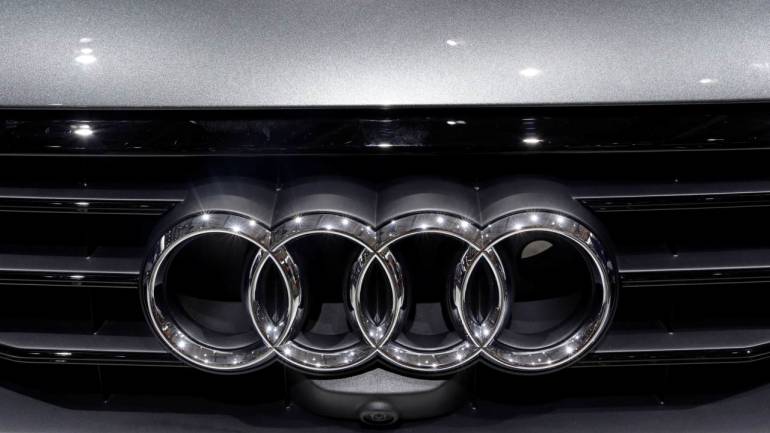
German luxury carmaker Audi is putting its bet on petrol, plug-in hybrids and electric vehicles in India, driving away from diesel cars, as the country gears up to adopt strict BS-VI emission norms from April next year, according to a top company official.
With the automobile market currently on a downturn, Audi India expects sales to remain muted even next year and pick up only in 2021, stabilising after BS-VI implementation.
The company is gearing up to launch its full electric SUV e-tron in the early part of next year in sync with the government’s push for electric mobility.
“For India we want to launch the e-tron latest by 2020 beginning…We do believe that not only e-tron but even plug-in hybrid electric vehicles (PHEVs) and petrol will define the path for Audi in India,” the company’s outgoing India head Rahil Ansari told PTI.
He said the company has witnessed a clear shift in demand from diesel to petrol vehicles here in India.
“Earlier petrol percentage was 10 percent, this year we have about 35-40 percent petrol already and next year we will have for the first time in Audi India’s history larger share of petrol than diesel. We are also pushing for this,” Ansari added.
As part of the plans, the company will bring in only petrol options of its upcoming new A6, A8 and Q8 vehicles. The company will launch the new A6 sedan in September this year, followed by A8 and Q8 in December.
“We do believe that this is the right step, in combination with EV and PHEV. So first we will see how the market develops. This is a very courageous step but we do believe that this is the future for us, when it comes to reducing emissions in India,” Ansari said.
On future product profile, he said,”We will definitely bring in more cars in the volume segment from next year onwards. We will also have good models that are not only upper end but also also the bottom end of (luxury).”
He further said Audi India is also discussing with the headquarters in Germany on completely new products which are “about to be confirmed in the next few months to test waters” here.
“If these turn out to be successful, we may even look at local production,” Ansari said without disclosing details.
Commenting on sales outlook, he said, “We don’t expect the market to grow this year. Overall, the next 12-24 months the market will stabilise and from then onwards it will grow. So, basically from 2021 onwards the markets will grow again and the luxury market will also grow again.”
Explaining his views, Ansari said, “When the shift to BS-VI comes, there will be a bit of an unnatural peak in the first quarter of next year and there will be an unnatural decline in the second quarter as people would have bought in the first quarter. Then the market will stabilise in the third and fourth quarter and by 2021 it will go up again.”
Audi India had sold 6,463 units last year and expects sales to be flat this year, with growth returning from 2021, he said.
Ansari said the company is also focussing on digitisation to serve its customers better.
India is the first market globally where Audi has introduced augmented reality which helps customers during buying process by providing an extremely realistic experience of their individually configured car.
[“source=moneycontrol”]





